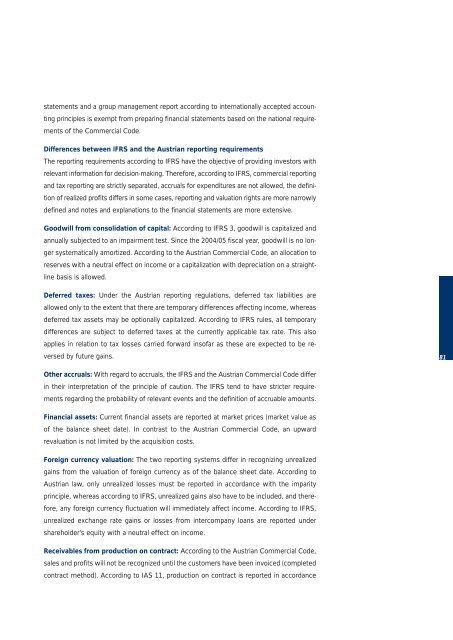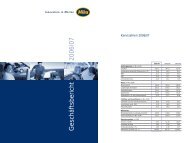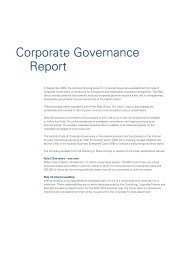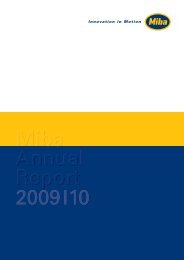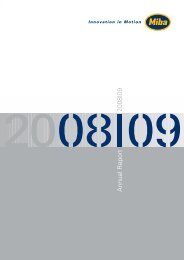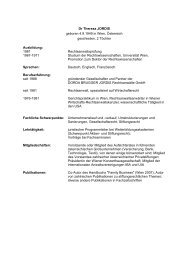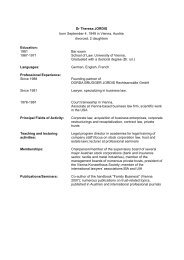Annual Report - Miba
Annual Report - Miba
Annual Report - Miba
- TAGS
- annual
- miba
- www.miba.com
You also want an ePaper? Increase the reach of your titles
YUMPU automatically turns print PDFs into web optimized ePapers that Google loves.
statements and a group management report according to internationally accepted accounting<br />
principles is exempt from preparing financial statements based on the national requirements<br />
of the Commercial Code.<br />
Differences between IFRS and the Austrian reporting requirements<br />
The reporting requirements according to IFRS have the objective of providing investors with<br />
relevant information for decision-making. Therefore, according to IFRS, commercial reporting<br />
and tax reporting are strictly separated, accruals for expenditures are not allowed, the definition<br />
of realized profits differs in some cases, reporting and valuation rights are more narrowly<br />
defined and notes and explanations to the financial statements are more extensive.<br />
Goodwill from consolidation of capital: According to IFRS 3, goodwill is capitalized and<br />
annually subjected to an impairment test. Since the 2004/05 fiscal year, goodwill is no longer<br />
systematically amortized. According to the Austrian Commercial Code, an allocation to<br />
reserves with a neutral effect on income or a capitalization with depreciation on a straightline<br />
basis is allowed.<br />
Deferred taxes: Under the Austrian reporting regulations, deferred tax liabilities are<br />
allowed only to the extent that there are temporary differences affecting income, whereas<br />
deferred tax assets may be optionally capitalized. According to IFRS rules, all temporary<br />
differences are subject to deferred taxes at the currently applicable tax rate. This also<br />
applies in relation to tax losses carried forward insofar as these are expected to be reversed<br />
by future gains.<br />
Other accruals: With regard to accruals, the IFRS and the Austrian Commercial Code differ<br />
in their interpretation of the principle of caution. The IFRS tend to have stricter requirements<br />
regarding the probability of relevant events and the definition of accruable amounts.<br />
Financial assets: Current financial assets are reported at market prices (market value as<br />
of the balance sheet date). In contrast to the Austrian Commercial Code, an upward<br />
revaluation is not limited by the acquisition costs.<br />
Foreign currency valuation: The two reporting systems differ in recognizing unrealized<br />
gains from the valuation of foreign currency as of the balance sheet date. According to<br />
Austrian law, only unrealized losses must be reported in accordance with the imparity<br />
principle, whereas according to IFRS, unrealized gains also have to be included, and therefore,<br />
any foreign currency fluctuation will immediately affect income. According to IFRS,<br />
unrealized exchange rate gains or losses from intercompany loans are reported under<br />
shareholder’s equity with a neutral effect on income.<br />
Receivables from production on contract: According to the Austrian Commercial Code,<br />
sales and profits will not be recognized until the customers have been invoiced (completed<br />
contract method). According to IAS 11, production on contract is reported in accordance<br />
81


